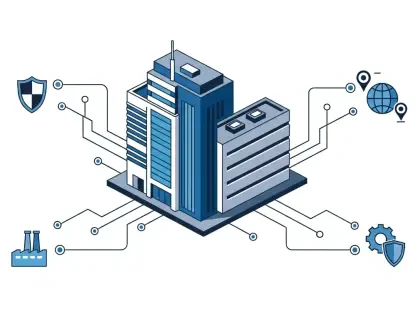Simon Glairy is a recognized expert in the fields of insurance and Insurtech, with a specialized focus on risk management and AI-driven risk assessment. Today, he shares his insights into the evolving landscape of customer service CRM, discussing cutting-edge trends, AI advancements, and integration strategies.
Can you introduce yourself and explain your role in your company?My name is Simon Glairy, and I am widely regarded as an expert in insurance and Insurtech. My primary focus is on risk management and leveraging AI for risk assessment purposes. In my role, I help companies navigate through the complexities of customer service CRM by utilizing advanced technologies to drive efficiency and innovation.
How did you get into the field of customer service CRM?My journey into customer service CRM started with my background in insurance. As the industry began to evolve with digital transformation, I realized the immense potential of CRM systems. My interest deepened when I saw how AI could revolutionize these systems by providing deeper insights and enhancing customer interactions, ultimately leading to more effective risk management strategies.
What are the latest trends you see in the CRM market?There are several trends shaping the CRM market right now. One significant trend is the growing importance of unstructured data, like call logs, emails, and support tickets. AI’s role is also expanding, with technologies like Retrieval-Augmented Generation (RAG) being integrated into CRM systems to offer real-time insights and pattern recognition that preemptively address customer issues.
How is AI impacting the CRM landscape currently?AI is transforming the CRM landscape by automating routine tasks, enhancing data analysis, and providing personalized customer experiences. AI-driven solutions are becoming more sophisticated, enabling companies to offer proactive support and improving efficiency across front, middle, and back-office operations. This leads to faster issue resolution and higher customer satisfaction.
How significant is unstructured data in the current CRM market?Unstructured data is incredibly significant in the current CRM market. It contains valuable insights that were previously hard to analyze at scale. By unlocking this hidden data, businesses can improve the quality and value of their AI outputs, leading to more effective customer service and better decision-making processes.
What is unstructured data and why is it important for CRMs?Unstructured data refers to information that doesn’t have a predefined data model, such as emails, call transcripts, and social media interactions. It’s important for CRMs because it provides a wealth of information about customer behaviors and preferences, which can be used to enhance AI-driven insights and offer more personalized customer service.
How do you see AI handling unstructured data differently than before?AI has become much more adept at processing unstructured data. Advances in natural language processing and machine learning algorithms allow AI to extract meaningful insights from vast amounts of data that were previously overlooked. This capability enables CRMs to offer more accurate predictions and better customer experience management.
Can you share some examples of how unstructured data is being utilized in CRMs?Sure, unstructured data is utilized in numerous ways. For example, AI can analyze call transcripts to identify common customer complaints and suggest preemptive solutions. Email communications can be mined for sentiment analysis to gauge customer satisfaction. Social media interactions can be assessed to understand brand perception and customer engagement levels.
Can you explain what Retrieval-Augmented Generation (RAG) is?Retrieval-Augmented Generation (RAG) is a technique that combines information retrieval and natural language generation. It enhances AI’s ability to provide accurate and contextually relevant responses by integrating large datasets with real-time information. This results in more intelligent and responsive CRM systems.
How is RAG being integrated into CRM systems?RAG is being integrated into CRM systems to provide more comprehensive and context-aware responses. By pulling information from extensive databases and generating relevant answers, RAG improves the quality of automated interactions and ensures that customer queries are resolved more effectively.
What benefits do you see RAG bringing to customer service?RAG offers several benefits to customer service, including improved accuracy of responses, faster resolution times, and enhanced customer satisfaction. It enables CRMs to handle complex queries more efficiently by combining relevant data with AI-generated insights, leading to more informed and timely support.
How is end-to-end service automation changing traditional CRM systems?End-to-end service automation is revolutionizing traditional CRM systems by streamlining workflows across different departments. It integrates front, middle, and back-office operations, ensuring that service requests are captured, managed, and resolved seamlessly. This holistic approach reduces manual effort, improves efficiency, and enhances customer satisfaction.
What are some key benefits of integrating front, middle, and back-office operations?Integrating these operations breaks down silos within an organization, leading to faster and more accurate resolutions. It ensures that customer service teams have a comprehensive view of customer interactions, resulting in more personalized support. Additionally, it improves operational efficiency by automating repetitive tasks and reducing the potential for errors.
Can you provide an example of successful end-to-end automation in a CRM setup?Certainly. One notable example is a financial services company that implemented end-to-end automation in their CRM. By integrating their customer support, sales, and billing systems, they were able to automate the entire customer service lifecycle. This led to a significant reduction in response times, improved customer satisfaction scores, and operational cost savings.
Why is it important to integrate CRM with ERP systems?Integrating CRM with ERP systems is crucial for providing a holistic view of the customer. It ensures that all customer interactions, from sales to support to financial transactions, are easily accessible and managed in one place. This integration fosters better collaboration across departments and enables more informed and efficient decision-making.
How does this integration benefit customer service teams?Customer service teams benefit from this integration by gaining access to a complete customer profile. This includes purchase history, service interactions, and financial data, which allows for more personalized and effective support. It also streamlines processes, reduces redundant tasks, and improves overall service quality.
Can you share an example of how this integration has improved service delivery?An excellent example is a manufacturing company that integrated their CRM with their ERP system. This integration provided their customer service team with real-time access to inventory levels, order status, and past purchase information. As a result, they could offer more accurate and timely support, leading to higher customer satisfaction and loyalty.
What is AI-driven personalization in the context of CRM?AI-driven personalization in CRM refers to using AI technologies to tailor customer interactions based on individual preferences and behaviors. This involves analyzing customer data to deliver customized recommendations, responses, and solutions that meet each customer’s unique needs.
How are companies using AI to create personalized customer experiences?Companies are leveraging AI to analyze customer data and develop personalized marketing campaigns, product recommendations, and support experiences. For instance, AI algorithms can predict what products a customer might be interested in based on their browsing history and past purchases, leading to more relevant and engaging interactions.
What challenges do businesses face when implementing AI-driven personalization?One of the main challenges is ensuring the accuracy and quality of data used for personalization. Businesses also need to address privacy concerns and ensure compliance with data protection regulations. Additionally, integrating AI technologies into existing systems can be complex and may require significant investment in infrastructure and training.
What are the hottest features in customer service CRM today?Some of the hottest features include AI-powered assistants, real-time data analytics, and end-to-end automation. AI-driven personalization and integration with other enterprise systems like ERP are also highly sought after. These features help businesses provide more efficient, accurate, and personalized customer support.
How is the Breeze Customer Agent performing at HubSpot?The Breeze Customer Agent at HubSpot has been highly successful, with significant adoption rates among service teams. It helps reduce ticket volumes and improves resolution times by autonomously handling routine inquiries and providing insightful suggestions for more complex customer issues.
How do you see the role of AI agents evolving by 2025?By 2025, AI agents will become even more capable of handling a broader range of tasks autonomously. They will collaborate seamlessly with human agents, taking care of routine inquiries and complex interactions when needed. AI agents will also provide deeper insights and more accurate responses, transforming them into indispensable tools for customer service.
Do you have any advice for our readers?My advice for readers is to embrace the potential of AI in CRM systems. Start by ensuring your data is clean and well-organized, as this forms the foundation for effective AI-driven solutions. Stay up-to-date with the latest trends and technologies, and don’t be afraid to invest in integrating advanced AI capabilities into your CRM to enhance customer experiences and drive operational efficiency.









